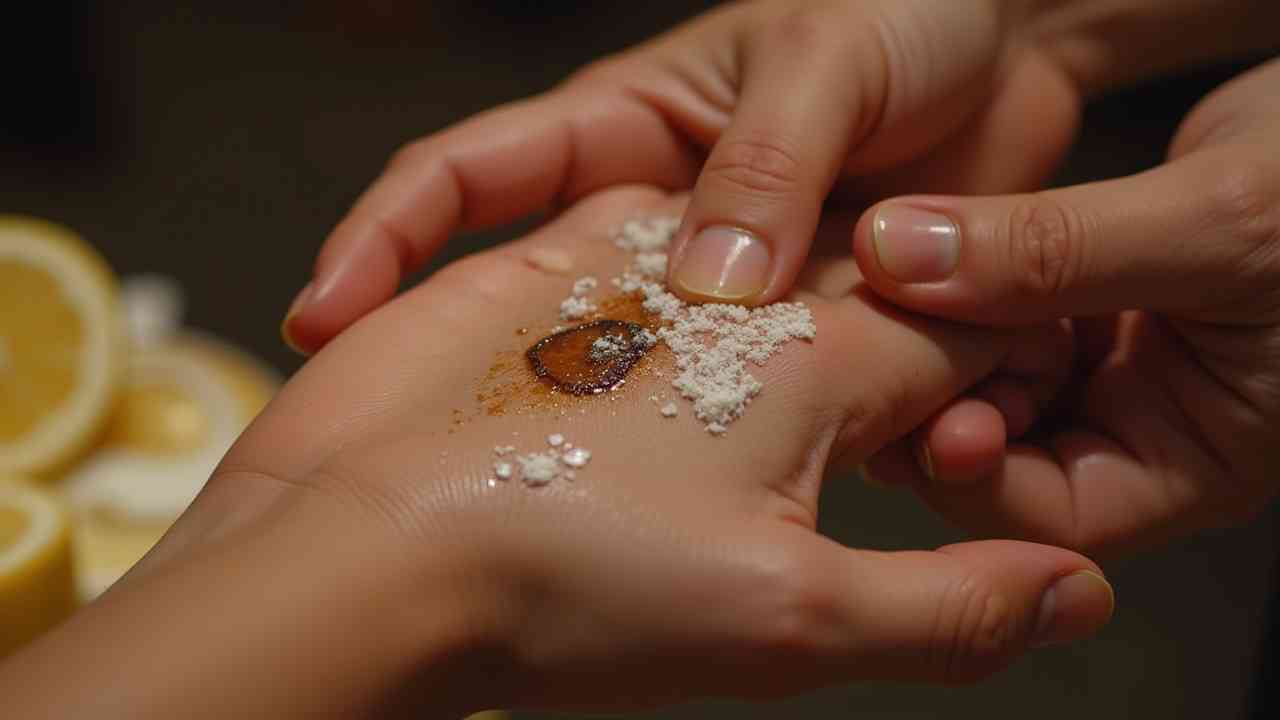
How to Fade Henna Stains Quickly: 5 Best Home Hacks ✋🧪
Understanding the Henna Staining Process
Henna creates a stain on the skin through a chemical reaction. The dye molecule, lawsone, binds to the keratin protein in the outermost layer of the skin (the stratum corneum). This binding is temporary. The stain will only disappear naturally when the skin cells shed completely ⏳.
Why Fading Takes Time
Natural skin cell turnover takes about one to three weeks. To fade the stain quickly, you must artificially accelerate this natural exfoliation process. The methods focus on maximizing friction and using fat-based chemical exfoliation 🔑.
The Best Home Remedies for Quick Fading
These methods are designed to gently lift the stained top layers of skin. Consistency and repeated application are necessary for visible results.
1. Oil-Based Soaks (Maximum Absorption)
Oils are highly effective because they break down the lipids holding the keratin cells together. Generously apply coconut oil, olive oil, or baby oil to the stain. Leave the oil on the skin for 10 to 15 minutes 🥥. The oil softens the skin. Gently scrub the area with an old toothbrush or an exfoliating mitt 🧼. Repeat this process two to three times daily.
2. Salt Water Soaks and Exfoliation
Salt helps draw impurities and moisture from the skin's surface. Dissolve a half cup of sea salt or Epsom salt in a bowl of warm water. Soak the stained area (hands or feet) for 20 minutes 🧂. After soaking, gently scrub the area with an exfoliating mitt. The salt water softens the top layer, making it easier to lift the stain.
3. Baking Soda and Lemon Paste
Baking soda provides necessary physical exfoliation. Lemon juice provides mild chemical exfoliation (citric acid). Mix two tablespoons of baking soda with one teaspoon of fresh lemon juice and a small amount of water to form a thick paste 🍋. Apply the paste to the stain. Leave it on for 5 minutes, then scrub gently and rinse. Do not leave the paste on for too long, as lemon juice can cause sun sensitivity ⚠️.
The Cautionary Rule Avoid Trauma and Sun Exposure
To ensure fast, safe fading, you must avoid methods that cause actual skin damage. Damaging the skin risks scarring and hyperpigmentation.
Do Not Scrub Vigorously
Never scrub the skin raw or until it bleeds. This causes inflammation and increases the risk of post-inflammatory hyperpigmentation. Gentle, persistent scrubbing with oil is far more effective than intense friction ❌.
Strictly Avoid Sun Exposure
The treated, freshly exfoliated skin is highly sensitive to the sun. Always apply SPF to the faded area if you go outside. Sun exposure can darken the remaining stain or cause severe burning and new hyperpigmentation ☀️.
Conclusion: Consistency and Gentle Friction
To fade henna stains quickly, focus on oil-based exfoliation and salt water soaks. Apply the chosen method consistently two to three times daily. Avoid harsh scrubbing. The stain will lift as the top layer of keratin sheds 🌟.